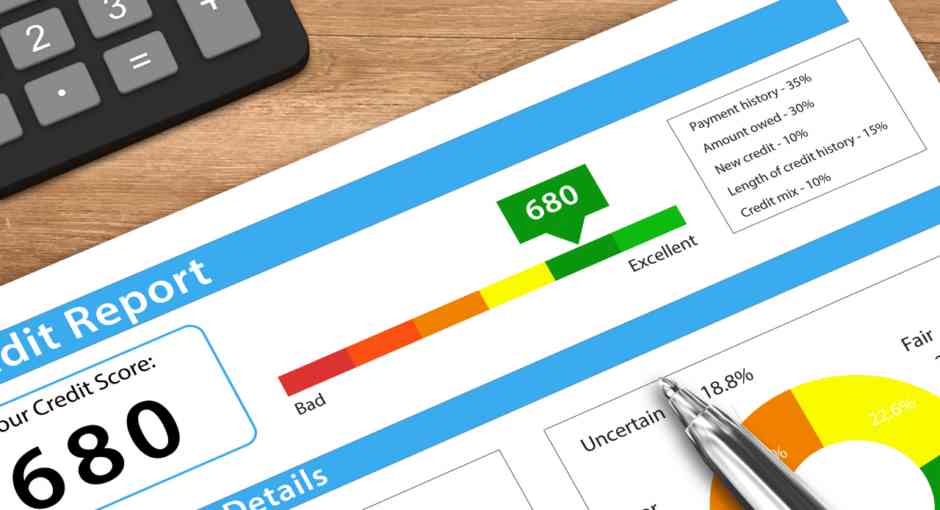If you have recently pulled your credit report and noticed a charge off, you might be wondering how to remove the charge off from your credit report.
First, know that a charge off in your credit history is a big deal. It will likely cause a huge credit score drop.
It’s important to get charge offs removed. Otherwise, the charge off will stay on your credit report for seven years.
What Is a Charge-Off?
When a creditor gives you a loan or line of credit, it assumes you’re going to pay back what you borrow. If you fall behind or stop making payments altogether, your account can become delinquent. Once an account has been delinquent for an extended period of time—typically meaning it’s 120 to 180 days late—the creditor may charge it off.
A charge-off means your account is written off as a loss. At this point, the account may be assigned or sold to a debt collection agency. The debt collector can then take action against you to try to get you to pay what’s owed. That can include calling you to ask for a payment, sending written requests for payment, or even suing you in civil court to try and obtain a judgment.
Charge-offs don’t end your obligation to repay the debt. Even if your original creditor no longer owns the account, you’ll still owe the debt to the collection agency that acquired it. Charge-offs and other negative account history, such as late or missed payments, can stay on your credit reports for up to seven years.
How Can I Remove a Charge Off From My Credit Report?
1. File a Dispute with the Credit Bureaus
The companies you do business can legally share details about how you pay your bills with the credit bureaus. Those credit bureaus, in turn, can gather information about you from multiple sources and package it together into easy-to-read reports. The credit bureaus then sell those reports to others who want to review your data to forecast the risk of doing business with you.
You also have rights when it comes to your personal credit information. One such right comes from the Fair Credit Reporting Act (FCRA). Per the FCRA, a consumer can “dispute with the consumer reporting agency the accuracy or completeness of any information in a report.”
When you dispute a charge off or any other item, the credit reporting agency that receives your request has 30 days to investigate. At the end of the investigation period, the bureau must take one of the following actions with the disputed item:
- Delete it
- Update/correct it
- Verify that it’s accurate
If your dispute is successful, they may remove the charge off from your file. But if the investigation doesn’t go in your favor, the account will stay put.
2. Pay for Delete
A pay for delete is a type of deal you can sometimes make with the original creditor. It starts with an offer to settle or pay back the full amount of a charged off account or a collection. In exchange for the debt being paid in full, you ask the original creditor to have the bureaus delete the account from your file.
A creditor can ask a credit bureau to remove a charged off account from your report any time it wishes. There’s nothing illegal about the practice since credit reporting is optional. The bureaus, however, frown upon pay for delete settlements.
Credit bureaus instruct debt collectors that report information to the credit bureaus (aka data furnishers) not to request deletions of accurate accounts in exchange for payment. In fact, data furnishers sign agreements with the credit bureaus promising to follow these and other rules. If a data furnisher violates its user agreement and gets caught, it might lose its ability to submit customer data to the credit bureaus in the future.
Credit reporting is important to many businesses. It helps creditors encourage customers to pay on time. For this reason, convincing a creditor to accept a pay for delete offer can be a long shot. If you negotiate a payment for deletion deal on a charge off, get the offer in writing before you make any payments.
3. Hire a Credit Repair Company
The FRCA gives you the right to dispute inaccurate information on your own. However, you don’t have to manage the process by yourself. Some people prefer to hire credit experts to assist with getting a charge off removed.
Credit repair companies can dispute questionable and inaccurate information on your credit reports—charged off accounts included. And if your initial dispute is unsuccessful, an experienced credit repair company should be able to help you follow up again.
Of course, there’s no guarantee that credit experts will be able to remove a charge off from your credit report. Any trustworthy company will be quick to point out this fact. But if you’re comfortable with the fees and you don’t want to send and track credit disputes yourself, working with the best credit repair companies might be a good fit for you.
Goodwill Letter to Remove Charge Off
Your name
Your address
Complete account numberAttn: Collection Manager,This letter is in reference to a debt claimed under the account number listed above. I wish to settle this debt in full without prejudice, in return for removal of the “charge-off” status with the credit rating agencies. This is not an admission of the debt or a payment agreement, unless you agree to have all information related to this debt removed from my credit file. In return for your removal agreement, I am willing to make payment in the full amount of $XXX.XX to be sent by certified funds. If this is acceptable, please acknowledge the details of this agreement in a letter written on your company’s letterhead. You will also agree to contact the collection agency to inform them of dismissal of the aforementioned debt.In addition, please be aware that as per my rights under the Fair Debt Collection Practices Act, I have a right to request full verification of this debt and to dispute it unless full verification is made. This offer is valid for 14 days from the date of receipt, after which it will be withdrawn and I will exercise my right to full verification.Sincerely,
Your Name
How Does a Charge Off Affect Your Credit Score?
Once an account has been charged off, two things will likely happen:
- First, you’re going to start receiving calls and letters from collection agencies attempting to collect the debt.
- Second, the account will be marked as a “charge off” on your credit report.
A charged off account on your credit report will devastate your FICO score. A single charge off can cause your credit score to drop 100 points or more. It’s a big deal.
In addition to your credit score dropping, you’re also going to have a really difficult time getting approved for any new credit cards, mortgages, or auto loans.
Lenders rarely extend credit to people with even one charge off on their credit report.

How Long Does It Take for a Charge Off to Be Removed?
The credit reporting agencies must remove the charge off from your credit report after seven years from the date. It might be possible, using one of the methods above, to remove the charge off early. But there are no guarantees when it comes to getting items removed from your credit file.
Trying to remove a charge off from your credit report can be a tedious process, especially if you’re not familiar with the FCRA and other consumer protection laws. But you don’t have to dispute charged off accounts alone. Credit Saint specializes in disputing errors that may be hurting your credit scores and showing you how to add positive information to your credit reports as well.
Paid and Unpaid Charge Offs
There are two types of charge offs that could appear on your credit report.
If you have paid the charged-off account in full, the credit bureaus will mark the account as paid; if you haven’t it will remain marked as unpaid.
Should I Pay Charged Off Accounts?
There are several factors to consider as you decide whether to pay a charged off account.
- Are you expecting a credit score increase? Paying a charge off often won’t increase your score. If your goal is to boost your score, you may be better off to focus on bringing past-due accounts current, or paying down debt balances before you address charge offs.
- Do you plan to apply for new credit in the future? Some lenders may not be willing to work with you if you have outstanding, negative debts. A mortgage lender, for example, might want any charged off accounts on your credit report to show $0 balances before approving your application.
If you decide to pay or settle a charge off in full, it’s important to keep good records. Get a copy of the debt balance you owe (or the debt settlement offer) from the creditor before you pay. Then follow up to get a receipt and zero balance statement afterwards.
How Many Points Does a Charge Off Drop Your Credit Score?
It’s difficult to predict how much any specific action will affect your credit file. Credit scoring models don’t consider one item at a time when calculating your score. Rather, scoring models look at all of the information on your credit report together and predict your level of risk based on the overall picture.
A new late payment to a debt collector, for example, won’t drop your score by 20 points. Likewise, the appearance of a new charge off on your report isn’t worth a specific number of points either.
The impact a charge off has on your credit history is influenced by factors like the recency of the event and whether the credit card account has a past-due balance. The other items on your credit report are also relevant. And, of course, the type of scoring model that is used to calculate your FICO score makes a big difference in the outcome as well.
Check this Video:






